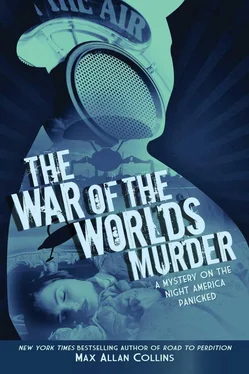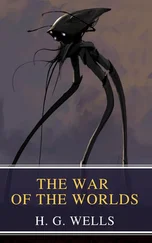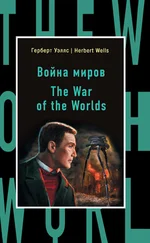Max Collins - The War of the Worlds Murder
Здесь есть возможность читать онлайн «Max Collins - The War of the Worlds Murder» весь текст электронной книги совершенно бесплатно (целиком полную версию без сокращений). В некоторых случаях можно слушать аудио, скачать через торрент в формате fb2 и присутствует краткое содержание. Жанр: Исторический детектив, на английском языке. Описание произведения, (предисловие) а так же отзывы посетителей доступны на портале библиотеки ЛибКат.
- Название:The War of the Worlds Murder
- Автор:
- Жанр:
- Год:неизвестен
- ISBN:нет данных
- Рейтинг книги:5 / 5. Голосов: 1
-
Избранное:Добавить в избранное
- Отзывы:
-
Ваша оценка:
- 100
- 1
- 2
- 3
- 4
- 5
The War of the Worlds Murder: краткое содержание, описание и аннотация
Предлагаем к чтению аннотацию, описание, краткое содержание или предисловие (зависит от того, что написал сам автор книги «The War of the Worlds Murder»). Если вы не нашли необходимую информацию о книге — напишите в комментариях, мы постараемся отыскать её.
The War of the Worlds Murder — читать онлайн бесплатно полную книгу (весь текст) целиком
Ниже представлен текст книги, разбитый по страницам. Система сохранения места последней прочитанной страницы, позволяет с удобством читать онлайн бесплатно книгу «The War of the Worlds Murder», без необходимости каждый раз заново искать на чём Вы остановились. Поставьте закладку, и сможете в любой момент перейти на страницу, на которой закончили чтение.
Интервал:
Закладка:
Welles, quietly, reasonably, and conspiratorially, said, “We go on with the show. We have our broadcast in…” He checked his wristwatch. “… less than fifteen minutes. If we call the authorities now, I may well be tied up with them, and we’ll let CBS down.”
“I would think,” Gibson said, edgily, “that the welfare of Miss Donovan is rather more important than that of the Columbia Broadcasting System.”
Welles looked properly abashed, but nonetheless said, “While I understand that sentiment, the truth is, Miss Donovan in no way benefits from our scuttling the broadcast.”
“If we call the police now,” Gibson said, “the chance of the killer’s apprehension is greater…much greater. The first several hours of a murder investigation are key-”
“But,” Welles said, lifting a lecturing forefinger, “our killer is either in the building, or not in the building…would you agree?”
Gibson frowned. “Well, aren’t those the only two options?”
“Indeed. But if the killer is gone, the killer is gone, and bringing the police here sooner doesn’t catch him…or her…any the sooner. But if the killer is in the building, perhaps one of our own broadcast family, then we may have the opportunity to nab him, or her, ourselves.”
“Our selves ?” Houseman said, eyes popping. In other circumstances, this reaction from the low-key producer would have amused Gibson; right now, it merely seemed grotesque.
“Think about it,” Welles said. “The killer knows that we are aware a murder has been committed. If we go about our business as if nothing has happened-and, again, if the killer is one of our own-he or she may well tip their hand…express in some fashion surprise, behave nervously, or even blurt something incriminating.”
“Possibly,” Gibson granted.
“Also,” Welles said, “while I undertake to go on with my broadcast-business-as-usual, you, Walter…if I am not imposing…could make a few discreet inquiries around the building.”
“I’m not sure I follow.”
Welles made an expansive gesture. “Well, on Sunday this building is something of a skeleton operation…so to speak. The offices, whether clerks or executives, are shut down-really, only the seventeenth floor, which is the news department, and the twentieth and twenty-first floors, where the studios are, are in use.”
Gibson asked, “What about the eighteenth and nineteenth floors?”
“Strictly offices. Some are assigned permanently, others are for general use.”
Lifting his eyebrows, Gibson said, “Plenty of places for a killer to hide.”
“Yes, but I’m not suggesting you search a twenty-two-floor office building.”
“Thank you so much. What are you suggesting, Orson?”
“Seek out the other security people, the actors and crew on the floor above us…working on Norman Corwin’s show, for instance…and say that Mr. Welles wondered if any of them have seen his wife, Virginia, today. Then ask the same thing about George Balanchine. In addition, ask if they saw Dolores Donovan at all today, away from her desk-and who she might have been speaking with.”
Finally Gibson was starting to buy in. “And whether or not any suspicious characters are around? Madden’s boys?”
Welles thought about that. “Maybe limit that query to the security guards. They’d note a presence like that, and you could say ‘Mr. Welles has had some death threats’ or some such.”
Fumbling for a fresh Camel, Gibson said, “So let’s say I agree to gather this info, Orson. Then what?”
“Right after the broadcast, you let Jack and me know what, if anything, you’ve discovered. Then…by all means…we call the authorities.”
“How do we explain waiting more than an hour to report a murder?”
With a gesture reminiscent of a ringmaster introducing an elephant act, Welles said, “We tell the truth-that we saw what appeared to be the dead body of our receptionist. That we found the door to be locked, and went after the key, and fetched our security guard…but found the studio empty.”
“What about the evidence traces we discovered?”
“That,” Welles said, raising a forefinger, “would be best discreetly left unremarked upon. The police are quite capable, I’m sure, of discovering clues for themselves.”
“What do we say to the cops,” Gibson said, “when they ask us what we thought when the corpse disappeared?”
“We say,” Welles said, with a pixie smile, and a mock-innocent tone, “that we simply didn’t know what to think…that we got quite naturally caught up in the pressures and deadlines of putting on our weekly broadcast, but that after the show, we determined we needed to inform them of what we’d seen.”
Sighing, Gibson asked, “Isn’t Howard Koch a lawyer? Maybe he could advise us as to whether we’d be breaking any laws, waiting to make that call-”
“I would suggest not,” Houseman said. He was clearly on Welles’s side in this. “Howard is indeed an attorney, which means he’s an officer of the court. He would be legally required to make that call, immediately.”
Gibson was shaking his head, not in a “no” fashion, rather indicating his uncertainty. “The odds of us…of me …solving this thing in the next hour is, well, it isn’t much, Orson.”
Welles looked somber now; that flash of a pixie smile had been only a mild interruption in his desperate state. “It isn’t much, Walter-but it’s all I have. I’ve been framed for murder, dear boy. And the only Shadow that can help me now is a shadow of doubt cast over my guilt…which I am counting on you to conjure.”
CHAPTER SIX
At 7:56 P.M., E.S.T., miss Holliday was wandering through Studio One with a wastebasket in hand, a Joannie Appleseed in reverse, bending to pluck the litter of the long day, chiefly waxy sandwich paper and empty cardboard coffee cups. It wouldn’t do for anyone to step on such refuse and make an uncalled-for impromptu sound effect.
As she completed her task and disappeared with her small infectious smile through a doorway, Orson Welles-his shirtsleeves rolled up-stepped up onto his platform-style podium. To his left was Bernard Herrmann at his smaller podium (piano nearby) and his twenty-seven-piece orchestra. To Welles’s right was the horizontal picture window of the control booth, behind which were numerous anxious faces, belonging to CBS exec Davidson Taylor (in the sub-control room’s separate adjacent pane), Howard Koch, Paul Stewart, and John Houseman; next to Houseman, engineer John Dietz in his headphones, attending his console, lacked the anxiety of the others, seeming instead coolly focused and professional. Assembled before Welles were his actors, some on their feet, at microphones, script in hand, awaiting their cues within the rectangle of carpet, others at the two tables where they sat waiting for their own time to come.
A few moments before, Welles had casually asked if any one had seen his wife Virginia around today, or even this morning. No one had, or at least so they professed. Then, as a seeming afterthought, he said, “Say, somebody said George Balanchine was hanging around, earlier-anyone see him?” No, they said.
Now Welles was at his conductor’s post, a microphone stand with its large CBS head on a skinny chrome neck squeezed between him and his music stand. His Andy Gump-ish assistant Alland (aka Vakhtangov)-in a fedora and suspenders-was one of the actors this evening, but right now was attending to his charge. He handed up to Welles a large bottle of pineapple juice, which the director chugged-part throat remedy, part superstition-then passed the empty bottle back.
Alland walked over to set the bottle on one of the actor tables-already cluttered with Sunday newspapers and magazines, as well as scripts-and returned to the carpeted square.
Читать дальшеИнтервал:
Закладка:
Похожие книги на «The War of the Worlds Murder»
Представляем Вашему вниманию похожие книги на «The War of the Worlds Murder» списком для выбора. Мы отобрали схожую по названию и смыслу литературу в надежде предоставить читателям больше вариантов отыскать новые, интересные, ещё непрочитанные произведения.
Обсуждение, отзывы о книге «The War of the Worlds Murder» и просто собственные мнения читателей. Оставьте ваши комментарии, напишите, что Вы думаете о произведении, его смысле или главных героях. Укажите что конкретно понравилось, а что нет, и почему Вы так считаете.

![Герберт Уэллс - The War of the Worlds [С англо-русским словарем]](/books/26611/gerbert-uells-the-war-of-the-worlds-s-anglo-thumb.webp)










